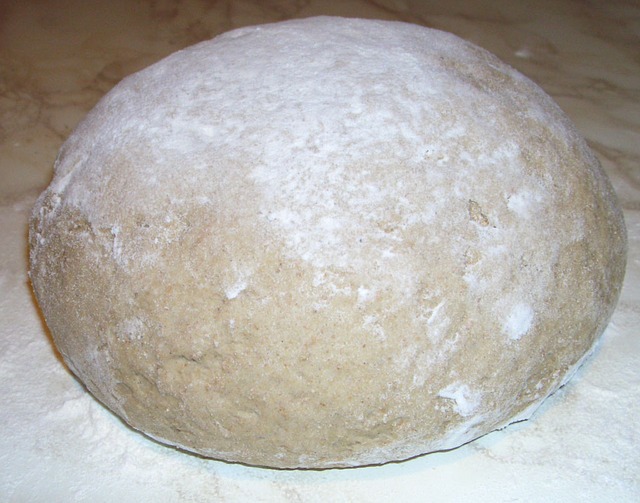
If you are a beginner in baking, you might be bombarded with many questions. I was in that same situation back when I was started.
One of the struggles I had was the preservation of the leftover dough. I had no idea whether or it was safe to refreeze dough.
There was a lot of experiments I did to figure it out myself. In this post, I will share with you what I found.
So, can you refreeze dough? Yes, you can refreeze dough as long as it is not left at room temperature for more than two hours. This is to make sure that the dough is safe from any contamination.
But if the dough was left on the countertop for several hours, it is better to discard it rather than refreezing it. Safety is the most important to consider here.
What happens if you refreeze dough?
Refreezing the leftover dough will keep it safe for later use. But what happens if you refreeze dough? Will it retain its original texture and overall quality?
Unfortunately, if the dough is refrozen, it will likely lose its moisture and elasticity during the thawing and refreezing process.
This means that the dough, depending on how you refreeze it, could potentially become harder.
If you are baking for personal family consumption, this is something you can deal with.
However, if you are selling baked products, then the quality will be of great concern.
This is the main reason why many do not recommend refreezing dough. But if you want to try this process, you are free to do so. Just be aware of the possible deterioration of the quality of your baked products.
How long can frozen dough stay in the fridge?
This is a question that many people have. The answer, however, is not as straightforward as one might think.
The amount of time that frozen dough can stay in the fridge depends on a number of factors, including the type of dough and how it was frozen.
Generally speaking, most types of dough can last for around 2 weeks. Freezing dough is not recommended for those who are looking to make fresh bread without using instant yeast.
Freezing dough is, however, a good idea if you plan on using fresh yeast. Freezing and thawing do reduce the activity of yeast and will make bread dough rise slower, but it will still produce bread.
A slightly more complex answer requires considering what type of freezer we are talking about – chest or upright?
Freezers vary in the rate that they freeze food. If you have an upright freezer, the food will freeze faster on the top than on the bottom. In a chest freezer, everything is at about the same temperature.
Some people like to freeze bread dough in bulk and then take out only as much as they need for a given recipe.
This is a good way to save time since you don’t have to wait for the dough to rise. Freezing bread dough in this manner will also help keep it fresh.
When freezing bread dough, be sure to wrap it tightly in plastic wrap or foil and then place it in a freezer bag. This will help prevent the formation of ice crystals, which can damage the dough.
Freezing bread dough may also have an effect on the texture of your finished product, so using frozen bread dough for pizza is not advisable.
If you are making a pie crust, be sure to place it between two sheets of wax paper or plastic wrap before putting it in the freezer bag. Freezing pie crusts in this manner will help them stay flaky.
You can also freeze pie filling. Just be sure to let it cool completely before freezing. Freezing pie filling in this manner will help you save time on those busy days when you don’t have time to cook from scratch.
As you can see, there is no one-size-fits-all answer to the question of how long frozen dough can stay in the fridge.
If you are looking for more specific advice on how long your type of dough can stay in the freezer, you will need to do some further research.
Can I refrigerate dough after second rise?
In most cases, you can refrigerate the dough after the second rise. This will help to keep the dough fresh until you are ready to bake it.
Freezing the dough is also an option, but make sure to thaw it before you bake it. Be sure to follow the specific instructions for your recipe, as some recipes may not include these steps.
The second rise is important because this gives the dough time to develop flavor, which makes the baked goods taste better.
Many recipes call for letting the dough rise in a warm place at 70 degrees Fahrenheit or above for an hour or two. If you are baking later that day, then it may be best just to let the dough rise at room temperature.
But if you need to refrigerate the dough, or you’re baking on a day when the temperature is not ideal for dough rising, then go ahead and put it in the fridge.
Just be sure to let it come back to room temperature before you bake it. This will ensure that the dough rises properly and that your baked goods are light and fluffy.
Can you refreeze frozen pastry after cooking?
The answer to this question is yes, you can refreeze frozen pastry after cooking. However, it is important to note that the quality of the pastry may not be as good as if it was freshly made.
When you refreeze pastry, it may become soggy or lose its flavor.
Additionally, refreezing pastry can cause it to become chewy or rubbery. If you do choose to refreeze pastry, be sure to do so as quickly as possible and within 24 hours of cooking.
Additionally, make sure the pastry is completely cooled before putting it in the freezer. Frozen pastry can be stored for up to two months.
If you are looking for a way to save your leftover pastry, it is best to refreeze the pastry after you have cooked with it.
If you are not planning on cooking immediately, put the pastry in the refrigerator.
It is also important to note that refreezing can affect the texture of the pastry and change its overall taste.
If possible, try reheating your refrozen pastry in the oven or microwave before eating it. Doing so may help to improve the quality of the pastry.
Final Thoughts
It is my hope that after reading this post, you know the answer to the main question “Can you refreeze dough?”
Also, I hope that everything I shared in this post helps you make better decision when it comes to baking involving dough.
Thank you for reading.
If you want to learn more about refreezing, please feel free to visit my guide here.

